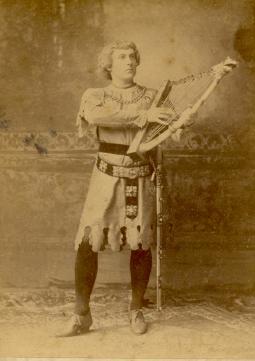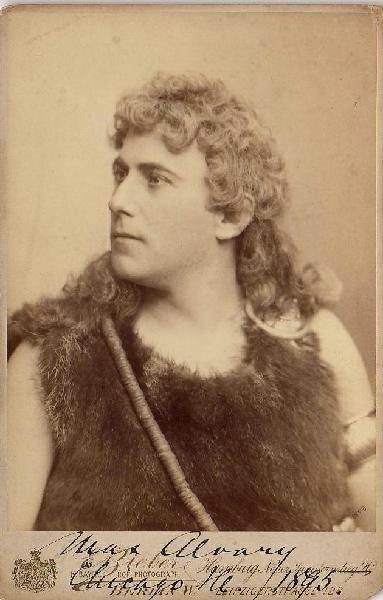His father was the famous painter Andreas Achenbach (his own real name was Maximilian Achenbach). He first studied
architecture in Italy, then voice with Julius Stockhausen in Frankfurt and Francesco Lamperti in Milano. He made his debut 1879 in
Weimar, where he stayed until 1885, singing lyrical roles like Don Ottavio or Gennaro (in Lucrezia Borgia). 1885–89, he was at
the Metropolitan Opera, where he sang America's first young Siegfried, which was to become his most famous role.
In 1890, Cosima
Wagner invited him to Bayreuth, where he sang Tristan and (just once) Tannhäuser – he and Cosima fell out with each other
because of Alvary's anything but traditional interpretations, and his Tannhäuser was just too much for her ultraconservative
approach. Alvary's voice and singing seem to have been average at best, but he was a highly individual, almost revolutionary
interpreter and actor, and divided audiences; particularly in Munich, where he appeared several times from 1890 on, particularly at
the new Wagner summer festival (intended and perceived as a competition for Bayreuth) in 1893 and 1894.
Unlike Munich, Hamburg was unanimously thrilled by Alvary since his 1890 debut, and he sang there a lot for the rest of his career.
Another place where he scored triumphs was London (1892–94).
In 1893 or 1894 (depending on sources), he was severely injured in a stage accident during a rehearsal in Mannheim. Several
surgeries ensued, he never fully recovered, and had to retire in 1896. He died two years later.
 As Tannhäuser
As Tannhäuser
Reference 1: Einhard Luther, So viel der Helden. Biographie eines Stimmfaches, Teil 3: Wagnertenöre der Kaiserzeit (1871–1918), Berlin 2006
Reference 2: Kutsch & Riemens
Reference 3

